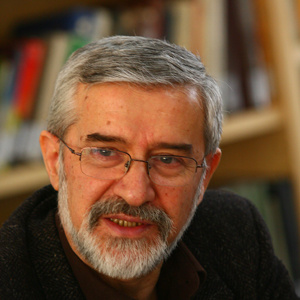Challenges facing Turkey, today and tomorrow

According to surveys, one of these important issues creating serious public worry is the issue of the Kurds. In the last survey taken by the Consensus Research Company, the primary concern of the Turkish people was the issue of unemployment and next to that was the “PKK Party” or, in other words, the issue of the Kurds.
In most countries, livelihood and welfare concerns leave no place for political issues in the first order. Therefore, the existence of a political issue next to issues concerning the livelihood of people indicates its importance. The issue of the Kurds has always been a problem for the “new” Turkey, or the post-Ottoman Turkey. It seems like solutions proposed and implemented have not had the desired results for Turkish governments, including the current one.
An event concerning this issue that took place in Turkey was the formation of the Democratic Society Party Assembly. This assembly brought about the topic of a separate flag for the Kurds and official recognition of their language alongside Turkish; these discussions caused a reaction among the political military circles in Turkey. Another important issue concerning the Kurds is the fact they are considering a change in their behavior after the recent uprisings in the region. They are assessing the new situation in the region, and it is very probable that we will see these uprisings setting the pattern for a new movement by Kurds in months ahead.
Another challenge that Turkey faced last year was the subject of the continuation of political power transfer from the powerful circle of the army to civilian politicians. This procedure needs time, and we can see that Turkey is seeking to free the political arena from the army and putting it in its right place through regulations in the parliament, through negotiations, and by other political methods.
Most political activists want politicians representing the people to run the government, just like in developed societies. During the past year, some encounters were observed regarding this case, including the detention of some former senior military commanders that were said to have participated in planning a coup. Their case is still open, and every day issues are raised concerning their case in the media.
The third challenge, which had always existed in Turkey and has become a major issue in the government of the Justice and Development party, is the confrontation between secular and Islamist circles. This confrontation is seen in cases like the issue of hijab, hijab in universities, and the appearance of officials’ wives wearing hijab on Turkey’s national day. This issue is followed seriously by those in the circles of power.
Apart from the Islamic convictions and beliefs of the majority of Turkish society, and their belief in considering Islam an important element in their lives, most Turks believe that state and religion are two separate issues. In a survey published by Vatan newspaper in Turkey, this can clearly be seen.
For example, 85% of the people believe that religion is an important element in their lives and 65% say that religious leaders must stay away from politics. At any rate, the issue of religion in Turkish society is one of the major issues that was manifested on many occasions last year, and will still be present next year as well.
Another challenge to the domestic affairs of Turkey last year was the issues raised by the Alevi community. According to statistics published in Hurriyet in November 2010, quoting a report by the State Department of the United States, Alevis make up a significant 15 to 20 million of the 77 million population of Turkey.
Alevis have proposed their demands in a democratic way and the Turkish government is trying to pay as much attention as possible to these demands; especially when this population plays a greater role in each election by the day.
Another major domestic challenge lurking beneath the surface is the fact that changes designed or implemented by the Justice and Development party have to be institutionalized over time, otherwise they will be eroded by opposing forces.
The Justice and Development party has unyielding obstacles ahead in implementing its plans. Freedom of religion and the lessening of the political power of the army are two elements that create a coalition between secular trends and the armed forces against the current government.
The last domestic challenge ahead in Turkey is the ongoing rivalry (since some time ago) between different parties and political movements for the upcoming June 12th election. From a different perspective, this election could be considered an assessment of the Justice and Development party programs.

